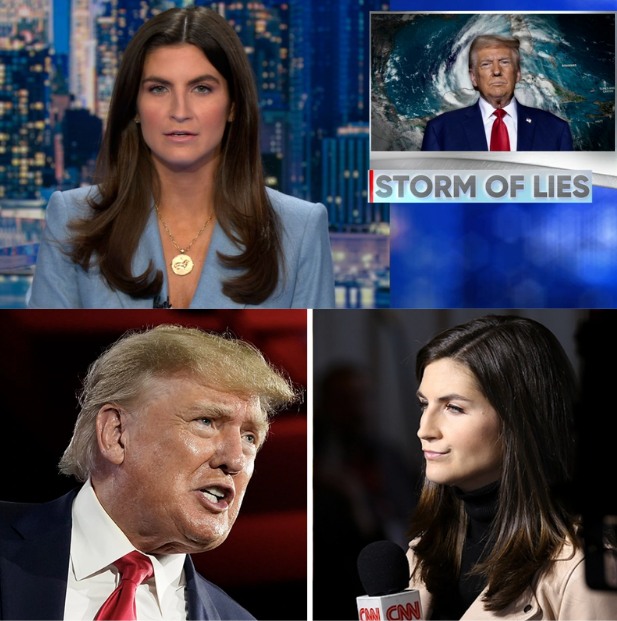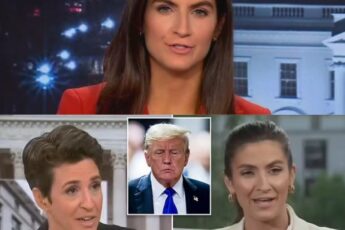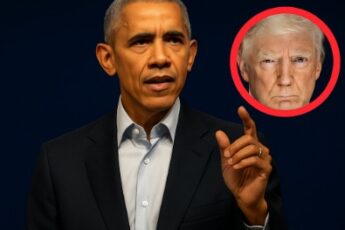With a scrolling wall of never-delivered promises and a razor-sharp supercut, Collins dismantled Trump’s favorite delay tactic live on air. What started as satire turned into a brutal exposé — and viewers couldn’t look away

CNN anchor Kaitlan Collins roasted President Donald Trump’s history of promising things within “the next two weeks” — then not delivering — with a pair of visual aids that really drove the point home.
Trump’s abrupt rush toward U.S. military involvement in the Iran-Israel conflict has created a fracture among high-profile MAGA supporters, ratcheting up pressure for a decision that White House Press Secretary Karoline Leavitt told reporters is now two weeks away.
That timeframe drew instant mockery and launched supercuts of Trump’s history with the two weeks “crutch.”
On Thursday night’s edition of CNN’s The Source with Kaitlan Collins, the anchor took viewers through that history with her own supercut, as well as a text crawl that illustrated the fact that Trump uses the tic so often “it’s tough to fit many of the instances on the screen all at the same time”:
KAITLAN COLLINS: One week into Israel’s airstrikes on Iran, we’re getting two weeks’ notice from President Trump.
I’m Kaitlan Collins. And this is THE SOURCE.
Tonight, the President is giving himself a very familiar deadline, to make what could be a legacy-defining decision. Two weeks. That’s how long the White House says the world may have to wait, to learn whether or not the United States military will join the fight between Israel and Iran.
(BEGIN VIDEO CLIP) KAROLINE LEAVITT, WHITE HOUSE PRESS SECRETARY: I have a message directly from the President, and I quote: “Based on the fact that there’s a substantial chance of negotiations that may or may not take place with Iran in the near future, I will make my decision whether or not to go within the next two weeks.”
COLLINS: The weight of deciding whether or not to commit to military action is obviously a serious one, one that many presidents have struggled with.
But if that two-week timeline that you heard there sounds familiar, that’s because it is. Since his first time in office, President Trump has often relied on a two-week metric, promising big answers, tough solutions, new policies, and even decisions on some of those pressing issues that are facing him, like efforts to end Russia’s war in Ukraine.
UNIDENTIFIED MALE: Do you trust President Putin?
DONALD TRUMP, PRESIDENT, UNITED STATES OF AMERICA: I’ll let you know in about two weeks.
UNIDENTIFIED MALE: In your mind, is Ukraine doing enough to get this, to get this…?
TRUMP: I’d rather tell you in about two weeks from now.
UNIDENTIFIED FEMALE: Do you still believe that Putin actually wants to end the war?
TRUMP: I can’t tell you that. But I’ll let you know in about two weeks.
COLLINS: President Trump has actually put forth a two-week timeline so frequently that it’s tough to fit many of the instances on the screen, all at the same time.
And of course, when you look at this, and how many times this has been the answer, when pressed by a reporter, for what his timeframe is for something, listen to the President in his own words.
TRUMP: I think you’re going to find some very interesting items coming to the forefront over the next two weeks.
We’ve got the plan largely completed, and we’ll be filing over the next two or three weeks.
We’re going to be having a news conference in about two weeks. I will make that decision, I would say, over the next two weeks.
And I’ll be making a big decision, on the Paris accord, over the next two weeks.
At some point in the next two weeks or three weeks, I’m going to be setting the deal.
Over the next two, three weeks.
In about two weeks.
Within two weeks.
In two weeks.
TRUMP: In two weeks.
You’ll be hearing about it a lot more in the next two weeks.
Maybe in a 100 years from now, maybe in two weeks.
COLLINS: Now, the White House didn’t say what exactly prompted the President to offer this two-week window, this time. That we have learned that the Iranian Foreign Minister plans to go to Switzerland, to meet with European counterparts, for talks in the coming days.






